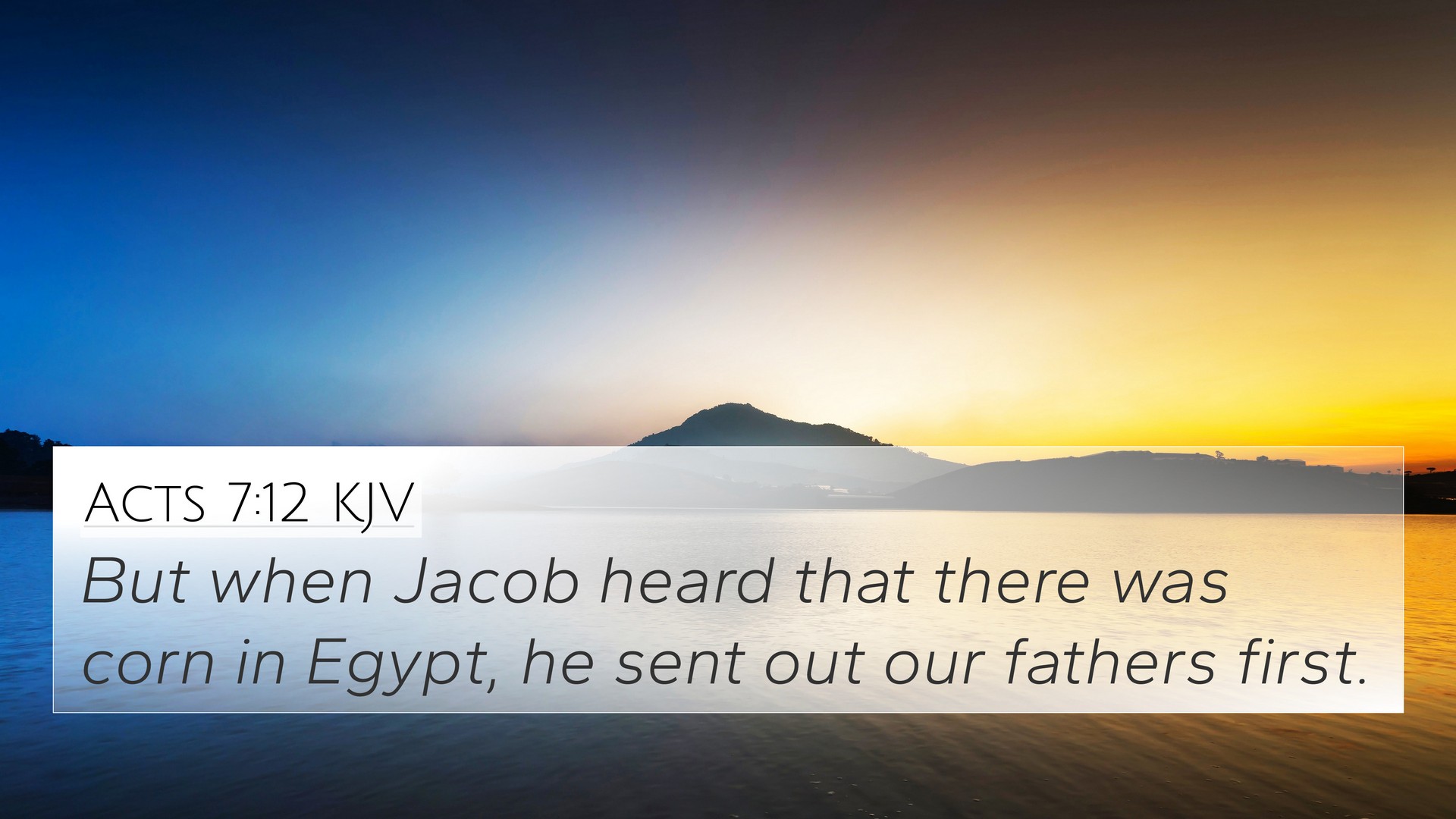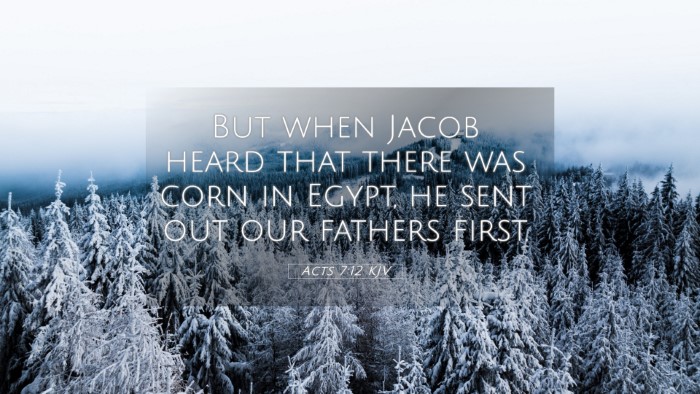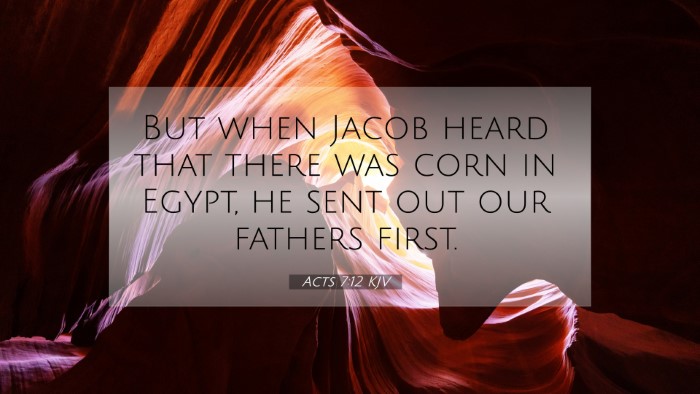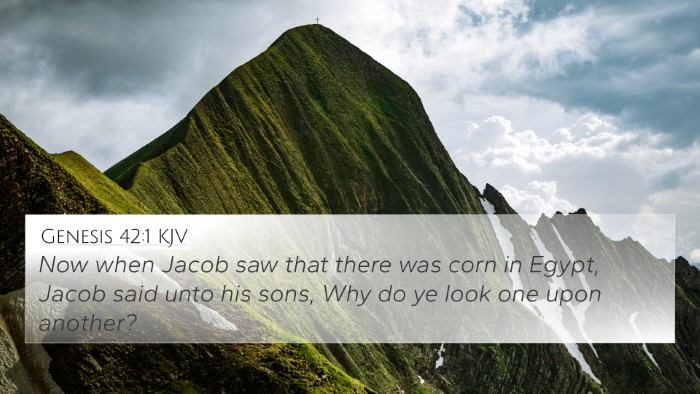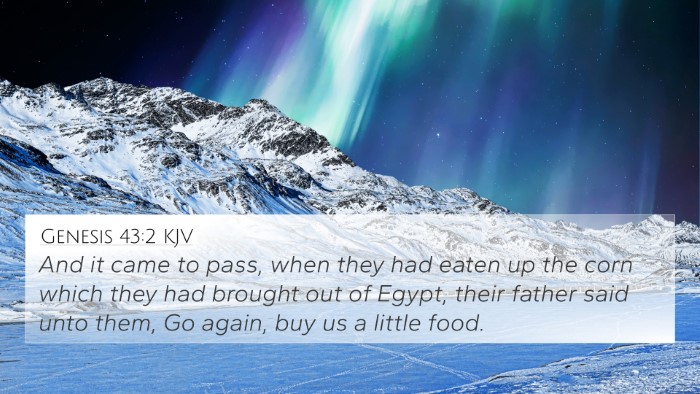Understanding Acts 7:12
Acts 7:12 states: "But when Jacob heard that there was corn in Egypt, he sent out our fathers first." This verse serves as part of Stephen's address to the Sanhedrin, where he recounts the history of Israel and highlights the pivotal moments of God's providence.
Context and Background
The context of Acts 7:12 lies in Stephen's defense against the false accusations made against him. He traces the history of Israel, focusing on Moses and the deliverance of God’s people from Egypt, and illustrating the recurring theme of rejection by the Israelites toward their leaders. This verse indicates Jacob’s decision to send his sons to Egypt for sustenance during a famine, marking a significant turning point in the narrative of God’s chosen people.
Commentary Insights
Matthew Henry's Commentary explains that this verse reflects the desperation of Jacob and his family during a famine. This action sets the stage for the eventual delivery of Israel from famine through God’s appointed leader, Joseph, who was in Egypt at that time. This decision indicates Jacob's faith in God's provision, despite the circumstances.
Albert Barnes' Commentary emphasizes the significance of divine providence in Jacob's decision. He notes that the reference to corn symbolizes God's nourishment and sustenance for His people during times of hardship, and highlights the interconnectedness of events that lead to the fulfillment of God's promises to Abraham, Isaac, and Jacob.
Adam Clarke's Commentary adds that sending the sons to Egypt was both a practical decision driven by necessity and an act of faith that ultimately connected Jacob's family with God’s plan for their deliverance and the eventual establishment of the nation of Israel in Egypt.
Thematic Connections
This verse can be cross-referenced with several other scriptures that illustrate themes of divine providence, the importance of faith, and the historical journey of God's people:
- Genesis 42:1-3 - The account of Jacob's sons traveling to Egypt for grain shows the subsequent action taken after hearing about the availability of food.
- Genesis 41:54 - This verse outlines the famine in all lands, corroborating the dire situation that prompted Jacob's decision.
- Exodus 1:7 - Discusses the prosperity of the Israelites in Egypt, linking to their eventual deliverance from oppression.
- Genesis 37:28 - This verse relates to Joseph’s journey to Egypt, setting a backdrop for the events leading to Israel's settlement in Egypt.
- Acts 7:9 - Connects to the mention of Joseph and how resentment towards him played a role in Israel's extended stay in Egypt.
- Romans 8:28 - Echoes the theme that God works all things together for good for those who love Him, parallel to the experiences of Jacob and his family.
- Matthew 6:25-34 - Jesus speaks about God’s provision and care for His people, linking to the assurance Jacob might have found in sending his sons to Egypt.
Cross-Referencing Biblical Texts
The act of cross-referencing allows deeper insight into the scriptures. Acts 7:12 invites readers to explore connections between Old and New Testament themes, demonstrating how earlier narratives lay groundwork for the spiritual truths found in the New Testament.
This verse serves as an example of how linking Bible scriptures reveals an intricate web of God’s sovereignty and faithfulness throughout history.
Conclusion
Acts 7:12 is not just a historical reference; it is a profound illustration of God's providential care and a reminder of the importance of faith during difficult times. By exploring this verse alongside other key scriptures, believers can gain a richer understanding of God’s word and draw deeper insights from the interconnected stories within the Bible.
